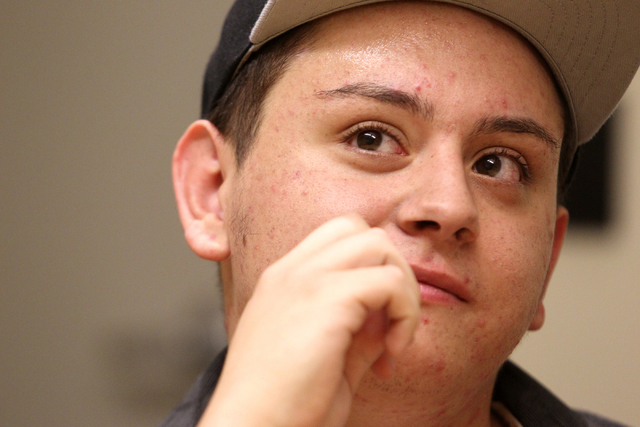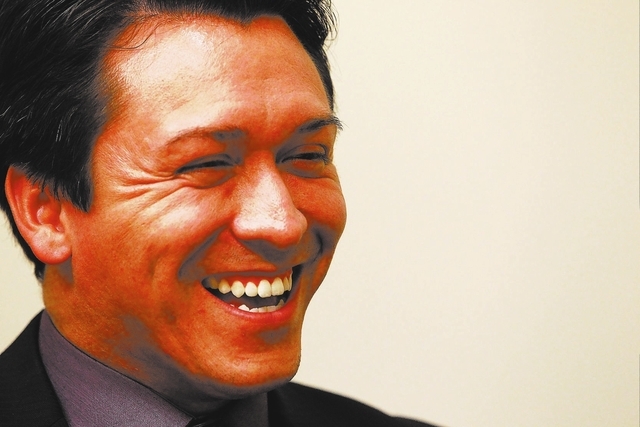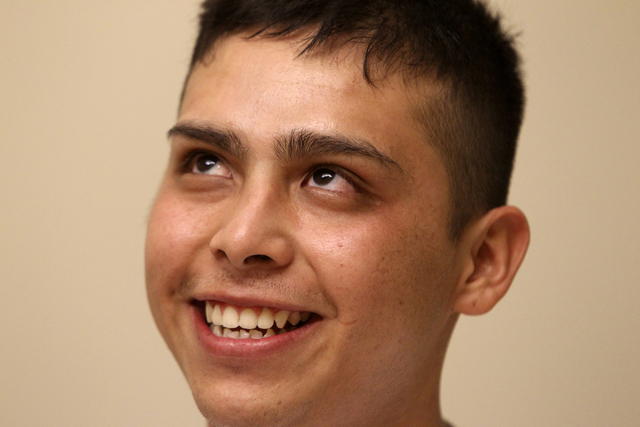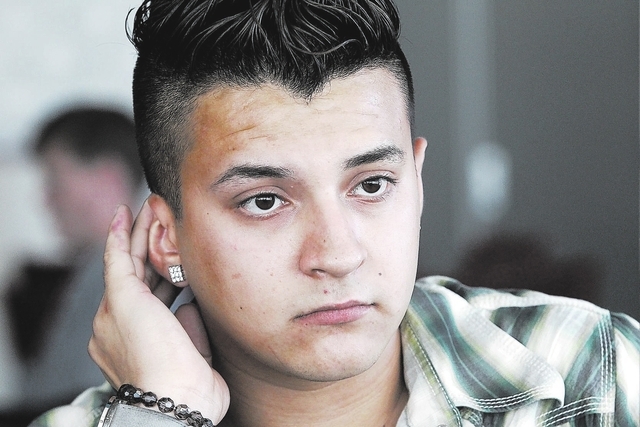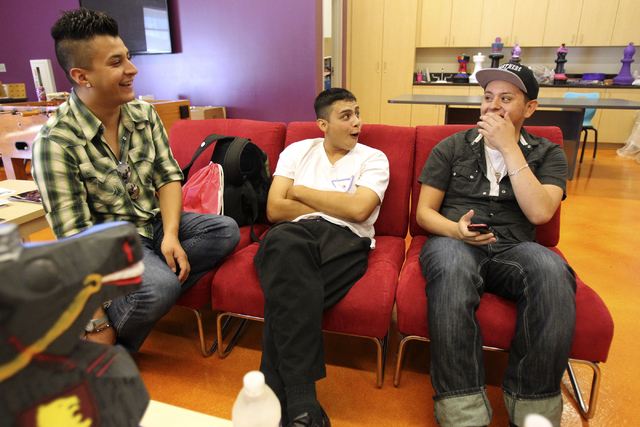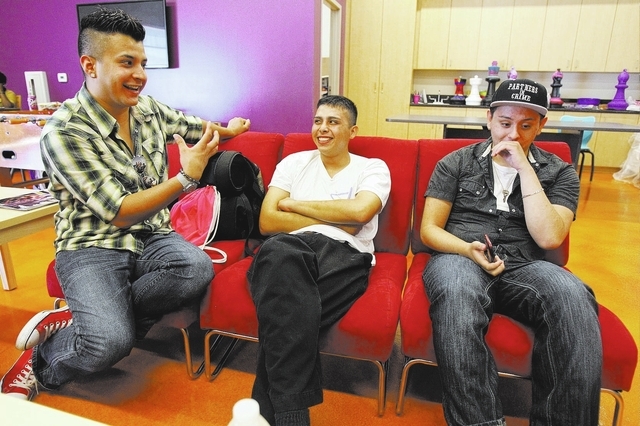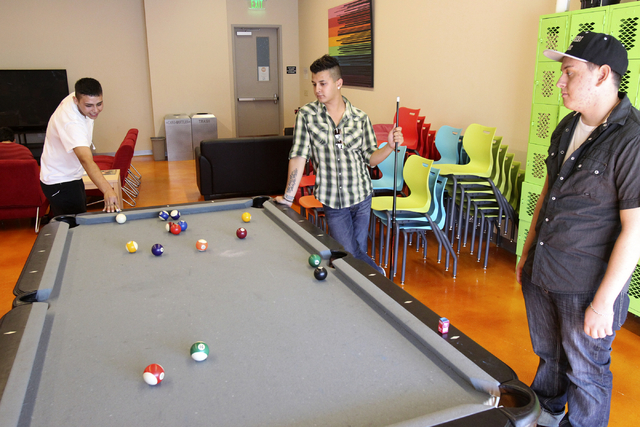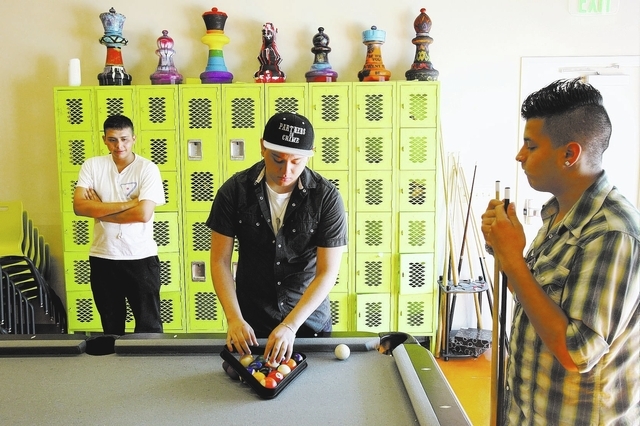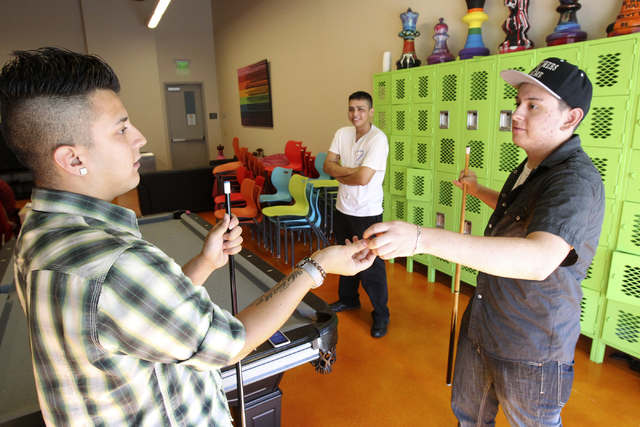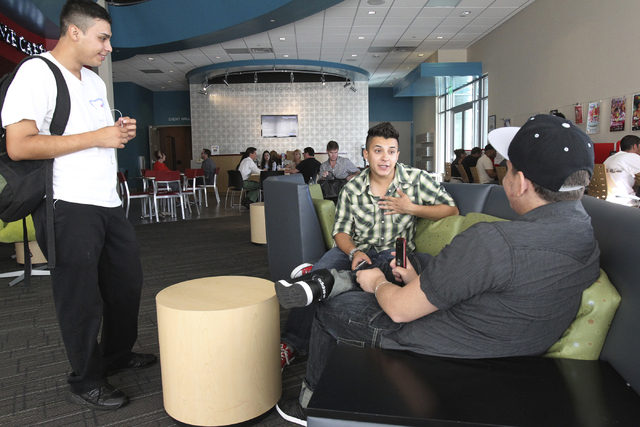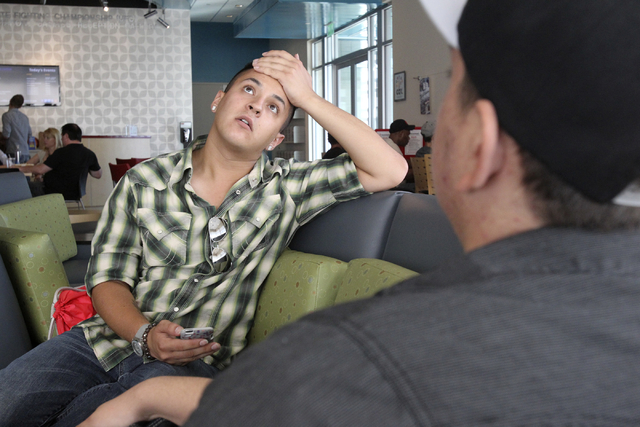Families fade away for some gay latinos
At first, David Luna thought he was going through a phase.
He was 16 and popular. He participated in kickboxing, cross-country, football and baseball at school.
Although he had many accomplishments, something did not feel right to him. He began to experiment with same-sex relationships. After having girlfriends in the past, he realized that he was attracted to guys.
Yet like many young gay Latinos discover, being gay does not fit in with their Latino culture. Luna quickly learned that his sexual orientation would not be tolerated in his family.
“My mom grew up in Compton (Calif.). She grew up very strong and tough,” says Luna, who is now 22. “She was also very religious. Her parents didn’t have an open mind so she didn’t have an open mind.”
Shortly after his family found out about his sexuality, Luna says he was asked to leave his home in Los Angeles.
A recent study published by the League of United Latin American Citizens and the Human Rights Campaign found that although support for gay Latinos continues to increase in society, at home Latinos face a greater challenge.
The report found that nearly 57 percent of Latino lesbian, gay, bisexual or transgender youths say their families accept them. In contrast, 66 percent of white LGBT youths say their families accept their sexual orientation.
The study cited religion as a cultural factor that impedes family acceptance. According to the Pew Research Center, 70 percent of Latinos attend religious services regularly.
For Julio Chavez, 19, religion was a factor that affected him when he decided to tell his mother and his aunt that he is gay.
“Religion played a huge role in the (way my family) treated me. But it also had to do with our Latino culture. I grew up in a very conservative family. They were very religious and traditional,” Chavez says.
Much like Luna, Chavez came to Las Vegas last year to start a new life. Chavez left his hometown in New Oxford, Pa., after his mother’s rejection because of his sexual orientation.
Chavez is part of a homeless youth program. In the year since Chavez left home, he has talked to his mother more and he says she has come to support him.
“I realized that I really missed her. We talked and she said, ‘You’re my son and I wanted to keep you protected.’
“That’s why she was so strict. We have since grown tremendously. She pushed the fact that I’m homosexual aside and views me as a son,” Chavez says.
Rosa Damaris Gomez Leon, 18, had a strong relationship with her family until she came out.
She grew up with a traditional and conservative Salvadoran father who took them to church five times a week. Still, she was attracted to girls.
“I started realizing around middle school that I’d rather be hanging out with the girl that I liked more than the guy that I liked. It was then that I realized I was queer,” she says.
Gomez Leon decided to tell her parents about her sexual identity during her first year of high school. After an argument with her father, she told him that he needed to accept the fact that her friends are gay because his daughter is gay, too.
“Before that moment, he saw me as his pride and joy. I was his first child, ” she says.
Her father could not accept her lifestyle and began to distance himself and his side of the family from her, she says. It has been seven years since she last spoke to her father.
Her mother’s side of the family kept her younger cousins away from her for fear that she might influence them or, worse, play inappropriately with them.
“Some family members took me away from the girls. They thought I would do something to the girls and influence them,” she says. “When they realized how strong I was, they accepted me more. I graduated high school and I just enlisted in the military.”
Although her mother’s family now accepts her, Gomez Leon says she realizes how much support groups, such as the Gay and Lesbian Community Center of Southern Nevada, and friends have helped her.
“You’re born into family. But family can be friends and other people that you meet. So don’t be scared if family doesn’t accept you, because then they’re not really family. Family should accept you always,” she says.
The Center, at 401 S. Maryland Parkway, offers support groups, a cafeteria, basketball court, computer labs with free Wi-Fi, event space and has the largest LGBT library in the state, among other things.
Cameron Catton, head of youth services at The Center, says the number of Latinos who come to this community center has increased over the years.
“We try to be culturally sensitive of their needs,” Catton says. “Family acceptance is still a huge issue, especially when it has to do with religion. We do our best to facilitate groups to address their needs.”
Raul Daniels, vice president at The Center and director of sales for N9NE Group at the Palms, joined The Center when he was 16 years old.
A native of Mexico, Daniels had a hard time with his mother, who did not want to accept his sexuality.
“My mom said that (homosexual) people end up alone. They don’t get married and they don’t have kids,” Daniels says. “My fear was that I was going to die alone, as well. I thought that was the only option for us.”
Daniels is now breaking the mold. Not only does he have a good job, he also married his Dominican boyfriend of four years in Laguna Beach, Calif., last month. Their goal is to adopt children.
Nevada has an anti-marriage constitutional amendment, which allows domestic partnerships, but bans same-sex marriages.
Latinos in same-sex relationships have a higher risk of harassment or violence because of their sexual orientation compared with other ethnic LGBT couples, according to the League of United Latin American Citizens and the Human Rights Campaign study. Because of this, LGBT Latinos are less likely to participate in a variety of community activities.
Ellen Kahn, director of the child, youth and families program at the Human Rights Campaign, says that although Latinos continue to experience challenges at home because of their sexuality, their experiences are consistent with those of other LGBT youths.
“LGBT youths (no matter their ethnicity or race) continue to find the most support from their closest friends,” Kahn says.
However, the League and Human Rights Campaign study reported that 47 percent of gay Latino youth say they have an adult in their family they can trust if they feel worried or sad, compared to 81 percent of their non-Latino LGBT peers.
“It’s been such a struggle to be my own mom, dad and best friend. After seven years I’m getting tired of it. It takes a lot of energy out of you,” Luna says. “I would give up everything to have my family back.”
The Human Rights Campaign’s Latino youth report is available at www.hrc.org/latinoyouth. A copy of the full youth report is available at: www.hrc.org/youth.
For information on The Center, visit thecenterlv.com.
Contact reporter Sandy Lopez at slopez@reviewjournal.com or 702-383-4686.



